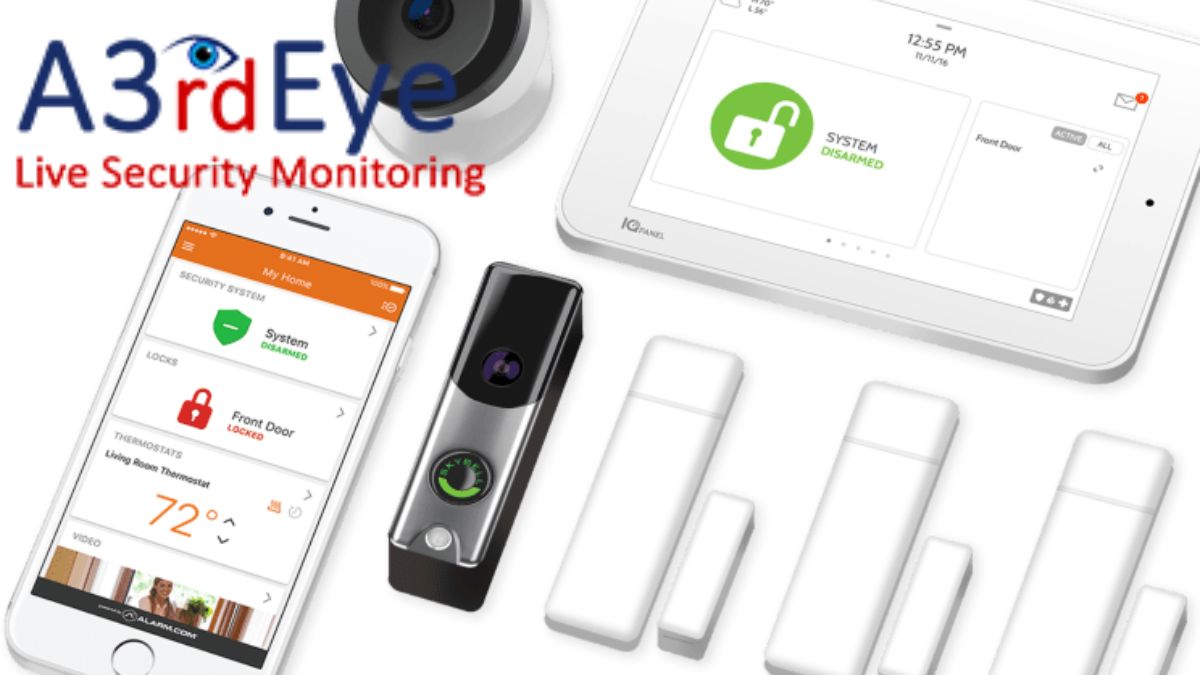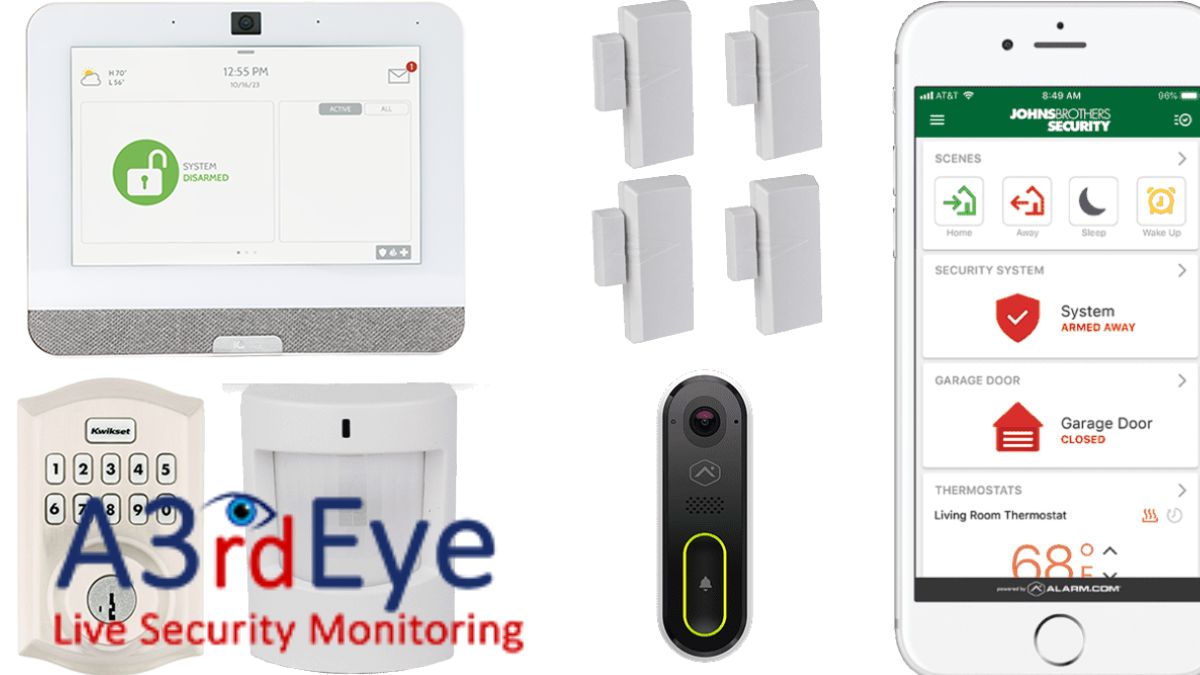
Hardwired Security System: security
When it comes to security, nothing beats the tried-and-true reliability of a hardwired system, which relies on physical connections (usually wires) to link together its many parts. Hardwired security systems use a wired network to send data as opposed to radio signals used by wireless systems. These setups maintain a constant flow of energy and information, allowing for constant security monitoring.
Explain the operation of a hardwired alarm system.
Sensors, control panels, keypads, sirens, and monitoring devices are just few of the many parts that make up a hardwired security system. The sensors have been strategically placed around the building to pick up on any unwelcome visitors or unusual behavior. An alarm is set off and the monitoring station or property owner is notified when a sensor is tripped.
Hardwired security systems offer dependable protection since they are not as susceptible to interference or signal loss.
Physical connections increase security since it is more difficult for hackers to disable or tamper with the system.
Battery backups are common in hardwired systems, keeping them operational even if the power goes out.
These systems can be easily integrated with smart devices for streamlined control and monitoring, making them ideal for use in the context of home automation.
What You Need to Know About Wired Security Systems
The brains behind your security system, the control panel is where all the action happens.
Sensors will sound an alert if they detect motion or an attempt at entrance.
Control the security system’s settings and activate/deactivate alarms with the use of a keypad.
Sirens: make a loud noise to scare away potential invaders and notify the residents.
Alarm-triggering communication between monitoring devices and central stations or property owners.
How Wired Security Systems Are Installed
Consider potential access points, where to put sensors, and where to put the control panel as you plan the system’s configuration.
Connect all of the parts to the control panel by running cables between them.
Place monitoring equipment such as sensors, keypads, and sirens at strategic positions.
Plug in the control panel and adjust the settings.
Make sure everything is working as it should by performing extensive testing on the system.
Hardwired Security System Upkeep and Repair
A hardwired security system can only function at peak efficiency with routine maintenance. Some preventative measures are as follows:
Remove any dust or debris that may be affecting the performance of the sensors.
Maintain a regular testing schedule to ensure the system is operating as intended.
Sensors and control panels may require new batteries, so make sure you check them regularly.
Verify that all wiring is safe and in good condition.
If you are experiencing problems with the system, please refer to the user manual or get in touch with a technician.
Combining Wi-Fi and a Hardwired Alarm System
Hardwired security systems can be made more practical and efficient by using smart technology. Here are a few potential outcomes:
You can manage your security, lighting, and other smart devices in one convenient location by linking the system to a home automation hub.
Arm, disarm, and keep an eye on your home security system from anywhere with a smartphone app.
Hands-free operation can be achieved by incorporating voice control via virtual assistants.
The Use of Closed-Circuit Television to Improve Safety
The addition of a video surveillance system to a traditional security system cannot be overstated. It’s a great way to keep an eye on things and catch any suspicious behavior on camera. Integration of video surveillance requires paying attention to the following factors:
Putting cameras in key positions to capture as much as possible.
High-resolution cameras were used so that every detail could be made out.
Adjusting settings related to recording, such as whether it is continuous or event-triggered, to suit your preferences.
Video streaming refers to the practice of watching videos online or on a mobile device.
Observed versus Unobserved Wire-based Safety Measures
There are two main types of wired security systems: monitored and unmonitored.
The security system is linked to a central monitoring station, which receives alarms and contacts emergency personnel as needed in a monitored system.
An unmonitored system sends an alert straight to the property owner and doesn’t involve a central station in any way. It uses the owner’s smartphone to either sound an alarm or send a notification.
Access and Management From Afar
Technology improvements have made it so that modern hardwired security systems can be accessed and controlled from a distance. The advantages are:
The security system may be remotely activated and disarmed, and settings can be adjusted from any internet-connected device.
Get instant alerts and notifications sent to your mobile device.
Remotely watch recorded videos and live feeds from cameras.
Remotely open doors to let guests enter for a short time.
Budgetary Concerns for Wired Alarm Systems
Several factors influence the final price of a wired security system, including:
The home’s size and level of complexity.
Essential sensor, camera, and component count.
Enhanced functionality and the incorporation of intelligent systems.
Costs associated with hiring an expert installer, if necessary.
The best way to evaluate the price of a security system is to get quotes from various reliable companies.
Conclusion
A hardwired security system is an excellent investment for the safety of your home or business. These systems give users piece of mind and prevent would-be attackers by being dependable, having increased security, and being compatible with smart technologies. When deciding on a hardwired security system, it’s important to think about how easy it will be to install, how often you’ll need to perform maintenance, and what other features you’d like.
What are the advantages of a hardwired security system over a wireless one?
When opposed to wireless systems, which are vulnerable to signal interference and hacking attempts, hardwired security systems provide a more stable and resilient solution.
Can I run wires from my house to a security system?
It may be achievable for those with sufficient technical knowledge, however hiring a professional is advised for optimal installation and system design.
I have a hardwired security system already installed, but I’d like to add more sensors or equipment.
Most connected security systems can have more sensors or features added to them as your needs change.
Does a wired security system need to be connected to the internet?
A hardwired security system does not have to have constant access to the internet. On the other hand, a connection to the internet is often required for remote access and control functions.
Is it possible to use a wired security system with a voice assistant like Google Home or Amazon Alexa?
Many wired security systems are compatible with the most popular voice assistants, so you may use your voice to activate and deactivate your system.

Hardwired Security System securityHardwired Security System security

